In the 21st century, content is king and many businesses and developers depend on large databases to store all their information. As your data continues to grow and become more complex, these SQL queries can run slow on you hurting application performance and end-user experience.
Historically, SQL query performance has been tuned manually by database administrators and it is a labor-intensive operation that is error-prone. Smarter, faster SQL query optimization has never been easier with the advancement of Artificial Intelligence.
So, we are going to discuss the best AI tools for SQL query optimization in this post.
To avoid AI detection, use Undetectable AI. It can do it in a single click.
Table of Contents
What Is SQL Query Optimization?
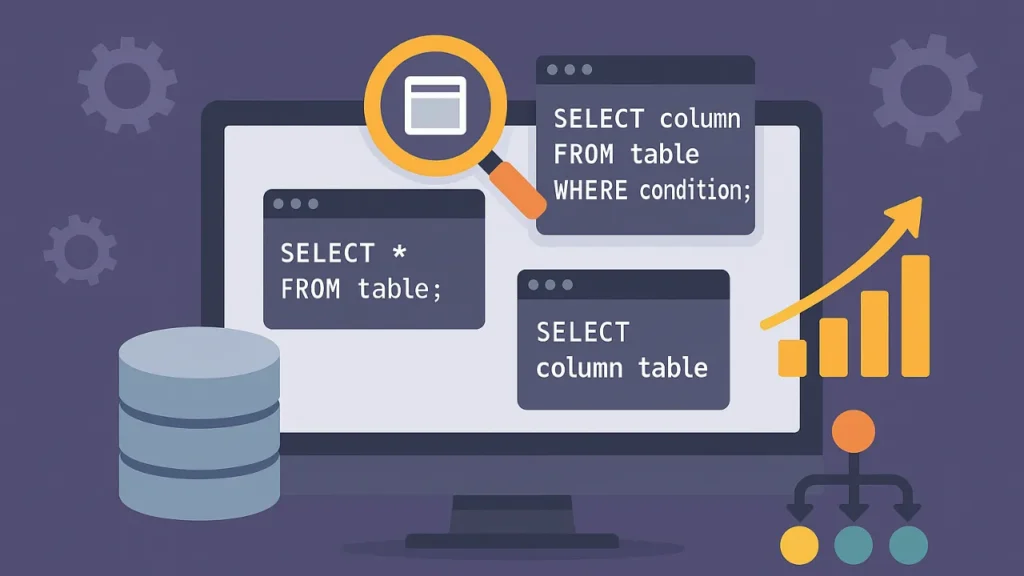
SQL query optimization is the process of writing and testing your SQL queries to ensure that they can be executed as quickly and efficiently as possible. A bad query can be the root cause of slow application, server overload or extra cost in operation.
The purpose of SQL query optimization is to make the execution time and resource utilization as minimal as possible. This is done by examining how the query itself is structured, what indexes are being used or could be added, table relationships and execution plans to identify potential bottlenecks.
Historically, database administrators (DBAs) would often manually tune queries by re-writing them, adding indexes, or tuning server settings. Although this method is successful, it may take long and is subject to human error.
Some of this work is now automated with the modern AI tools for SQL query optimization. These tools look at query patterns, forecast potential performance problems and propose remedies that enable faster, more intelligent optimization.
How AI Improves SQL Query Optimization?
Here’s how AI improves the optimization of SQL query:
Automatic Performance Analysis: By processing massive amounts of query logs and database activity, AI tools can detect slow (or unnecessarily slow) queries. Rather than sifting through every query by hand, AI surfaces the ones that are causing the most performance issues.
Intelligent Query Rewriting: AI can recommend and in some cases automatically rewrite bad SQL queries to improve their execution performance. For instance it may rewrite nested queries into joins, eliminate redundant operations, or rearrange queries to optimize execution.
Index Recommendations: Indexes are needed for fast querying of databases. AI can suggest you the best indexes to create based on query patterns. This help reduces query execution time significantly.
Execution Plan Optimization: AI-based tools can parse database execution plans to anticipate which operations are causing a query to slow down. They offer suggestions to improve these plans, so that query execution is more efficient.
Real-Time Anomaly Detection: AI monitors all queries at all times, and it is able to figure out when a query starts running slower than usual or if there are snowdrifts of resource overconsumption. This provides proactive optimization so that problems are not encountered by users.
Predictive Performance Tuning: Some more advanced AI tools can try to predict potential performance problems using historical data and trends. By anticipating bottlenecks, they help prevent slow queries and ensuring efficient database access.
Top AI Tools for SQL Query Optimization (2025 Updated)
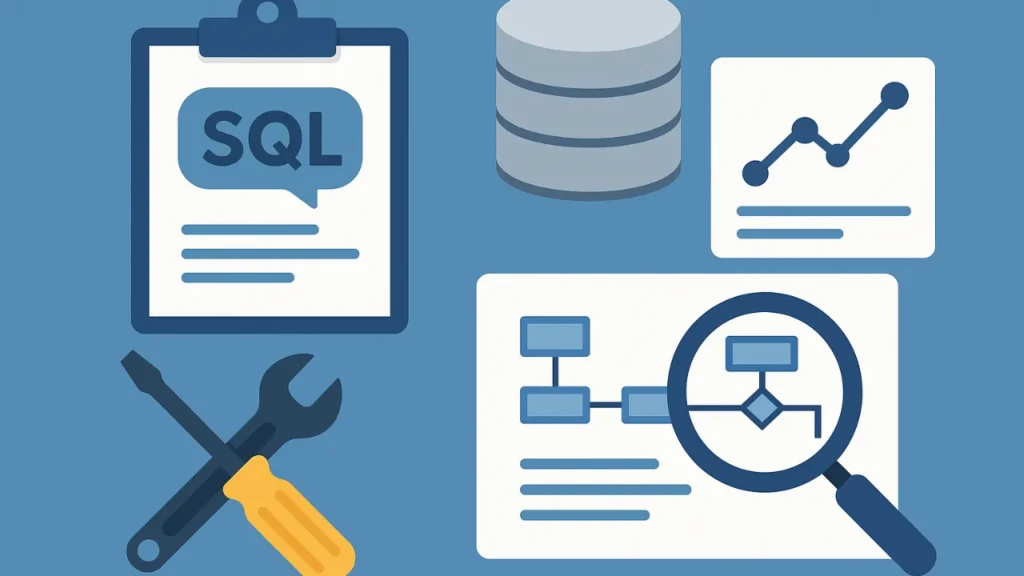
Here are several of the best AI tools for SQL query optimization in 2025, and how each does its magic and the use cases where these might be useful:
Aiven AI Database Optimizer
Formerly EverSQL, is now part of Aiven. Supports PostgreSQL and MySQL.
Features:
- Automatically suggests index optimizations
- Rewrites inefficient SQL queries
- Processes workload and schema metadata to provide actionable recommendations
Why use it: Ideal for teams who wish to retain a managed experience with an AI driven DBA and not expose any raw data.
SQLAI.ai
A high-throughput online optimizer which takes SQL as input and generates performance‑tuned output.
How it helps:
- Offers elaborate justifications for every AI adjustment
- Recommends database indexes to improve performance
Database support: MySQL, PostgreSQL, Oracle, SQL Server, BigQuery, SQLite etc.
Best for: Developers who want a transparent, explainable AI optimizer that also serves as a teacher of what it’s doing.
Text2SQL.ai
A natural-language-friendly tool: you paste or write a query and the AI parses it for optimization.
Key benefits:
- Optimize your SQL by reviewing the syntax, indexing and logical structure
- Supports various SQL dialects: MySQL, PostgreSQL, Oracle, SQL Server and many others.
When to use: Best if you are new and getting the natural language apps or experienced users looking for a quick performance gain.
Sourcetable AI SQL Optimizer
Powered by ChatGPT, this tool lets you tune your SQL in a spreadsheet-style interface.
What it does:
- Optimizes and cleans your SQL queries to get them running faster
- Connect to 500+ data sources so your optimizations are based on real data
Best for: Data analysts and business users who want to work in spreadsheet-style interfaces, but need performance tuning.
Workik AI
Workik AI is a general-purpose AI platform for optimization of SQL queries.
Core features:
- Instant query tuning
- Dynamic index suggestions (for MySQL, PostgreSQL, SQL Server)
- Refactors subqueries into faster constructs such as CTEs or window functions
Use case: Ideal for teams that need a collaborative UI, and shareable optimization workflows.
Draxlr AI SQL Optimizer
A free AI-based optimizer which especially works on query rewriting and performance tuning.
Features:
- Cleans and refactors SQL queries
- Explanations for the changes recommended by AI
Pricing: Free (Also includes cost-based SQL plan baseline)
Ideal for: Developers looking for AI-based SQL tuning with no footprint.
Lindy – AI Database Query Optimizer
A powerful AI-based tool for ongoing optimization of SQL.
How it works:
- Finds and ranks slow SQL queries from log or runtime metrics
- Suggests or applies index tuning and query rewriting (join reordering, CTE inlining etc)
- Performance monitoring and preventing regressions across deployments
Best for: Large applications or production systems where you desire self-healing database throughput/performance.
AutoSteer (Research / Advanced Use)
A learning optimizer that produces “hint-sets” for guiding query optimizers.
Strengths:
- Dynamically researching alternative query plans using tunable database knobs
- Helps DBAs to mage and tune their existing optimizer decisions
When to use: For research teams, database engine development teams, or very high performance/custom workloads.
| Tool | Primary function | Ideal Us Case |
| Aiven AI Database Optimizer | Auto-tuning, index suggestion | Continuous performance management for production DBs |
| SQLAI.ai | Query rewriting + index recommendations | People who want explainable AI suggestions |
| Text2SQL.ai | Natural language + query tuning | Beginners or analysts working in SQL |
| Sourcetable | Spreadsheet-style SQL optimization | Business users / analysts |
| Workik AI | Collaborative query tuning and refactoring | Developer teams working together |
| Draxlr | Lightweight free optimizer | Quick optimizations without cost commitment |
| Lindy | Self-healing and continuous tuning | Large or critical systems needing automated maintenance |
| AutoSteer | Research-level optimizer | Custom DBMS, research, or high-performance use cases |
Key Features to Look for in AI Tools for SQL Query Optimization
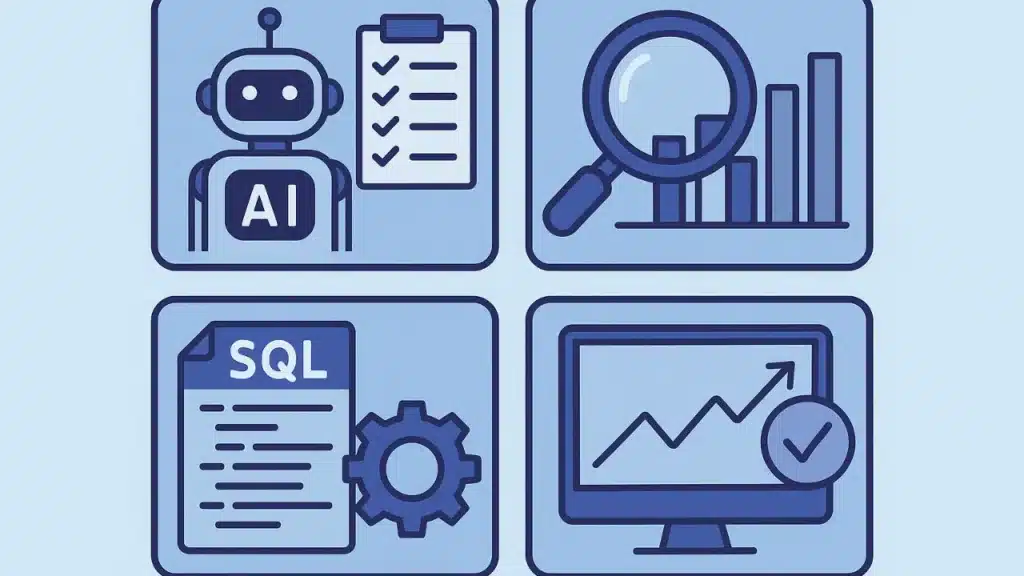
But not all SQL query optimization AI tools are equal.
Below are the key features to consider and why:
Intelligent Indexing Recommendations: The tool should advise indexes based on query patterns and workload. Good AI tools know when to add, change or drop indexes in order to find a suitable performance/storage balance.
Automatic Query Rewriting / Refactoring: AI should be able to rewrite nonperforming SQL (e.g., transforming subqueries into joins, leveraging window functions or CTEs) and make it perform optimally. It should offer equivalent query plans that produce the same results but with a more optimal performance.
Execution Plan Analysis & Visualization: A powerful AI SQL optimizer examines the query plan (EXPLAIN / EXPLAIN ANALYZE) to learn where exactly in the query it’s misbehaving.
Visual feedback (such as showing which operations are expensive) is useful to help DBAs and developers “navigate the space” of possible optimization opportunities.
Workload & Whole-System Awareness: Instead of focusing on individual queries in isolation, the better tools consider entire workloads to identify high-impact changes. That is AI can favor the most frequent or resource consuming queries when optimizing.
Predictive / Impact Modeling: Some AI tools do more than suggest changes; they model the impact of those changes on performance before applying them. They are there to save you from making a risky optimization and understand the ROI of changes.
Continuous Learning & Adaptation: Smart AI optimizers look at history of queries and evolve their suggestions in light of real database interactions. They should also evolve with schema changes, changing workloads and usage patterns.
Real-Time Monitoring & Anomaly Detection: AI needs to be paying attention to live database performance and looking out for things like latencies or resources spiking. Announcements and advice ought to be proactive, not just reactive.
Natural Language / Conversational Interface: For non-experts, tools providing the natural-language to SQL (NL2SQL) interaction model provide a more usable interface for optimization. This allows analysts or business users to ask for performance optimizations or query improvements just by stating what they want.
Database Engine & Dialect Support: Check that the AI tool supports your SQL database(s): MySQL, PostgreSQL, SQL Server, Oracle, BigQuery and so on. Also, more versatile tools enable cross-engine optimizations and multi database environments.
Security & Data Privacy: Sensitive information must not be revealed in the optimization process. Some tools consider schema metadata rather than actual data. Seek encryption, access controls, role-based permissions and secure processing practices.
Collaboration & Workflow Integration: AI SQL tools should integrate into your team’s workflow; support for an IDE, CI/CD, Git, database consoles etc are a bonus. Query versioning, shared dashboards, and team role access control ensure that optimization is a group responsibility.
Explainability & Transparency: Instead of simply recommending a change, the AI would need to articulate why it recommends that shift. This is how people learn to trust the tool. If you have a “diff” view between original and optimized query, it makes you will understand what impact.
Scalability & Cost Efficiency: The tool should grow with your database size, query volume and team requirements. Something with predictable pricing, usage-based plans or enterprise features (for alerts/automation) would be quite helpful.
Benefits of Using AI Tools for SQL Query Optimization
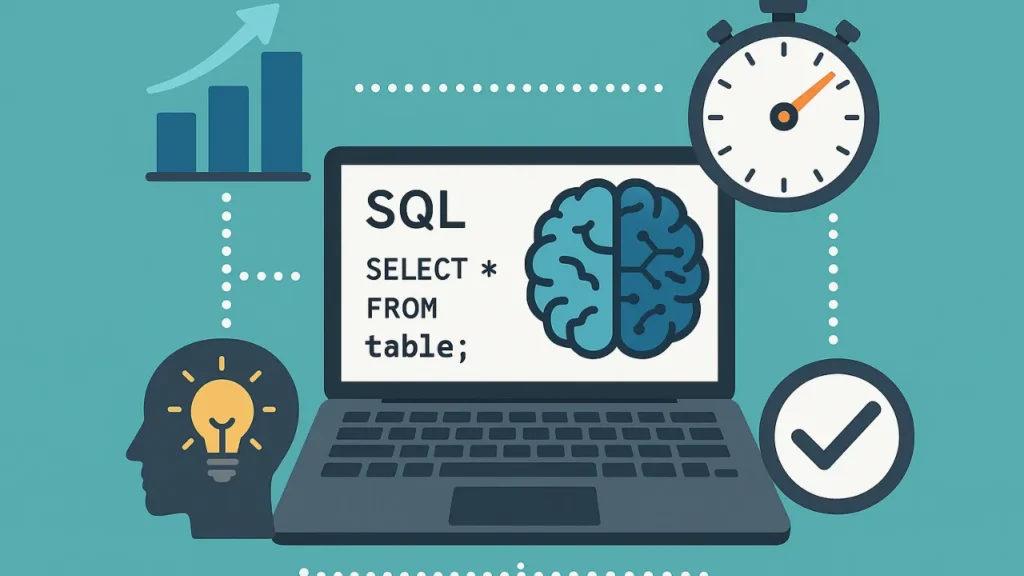
AI tools for SQL optimization have a few powerful features.
Here are the key benefits:
Faster Query Performance: Query plans and indexes are analyzed by AI tools to instantly detect bottlenecks. Using smart optimizations, they cut down the time taken to execute queries and make apps more responsive.
Reduced Manual Workload: AI automates difficult tasks like index recommendations, query rewriting, and performance troubleshooting saving expensive developer and DBA time.
Higher Application Efficiency: Optimized SQL leads to less CPU usage, less disk reads, and uses less memory. It’s a much smoother experience on data-heavy apps with large datasets.
Cost Savings on Infrastructure: And the faster a query runs, the less resources it takes up in said database. Just this can reduce costs, save storage space and lighten the server load.
Proactive Detection of Problems: Several AI instruments provide real-time tracking of a query’s performance and alert you when something is amiss, like slow-downs, deadlocks, or resource spikes. The best outages are the ones you never hear about.
Better Scalability: As data and traffic increase, AI-powered tools help your database to scale efficiently through continuously optimized queries and indexes. This way the performance of the system is kept constant, even if the workload grows.
Data-Driven Decision Making: AI decisions are derived from query history, workload patterns and performance stats. These insights empower teams to focus on their most impactful optimizations and decisions.
Improved Code Quality: AI tools naturally ensures better-quality database code, by proposing cleaner and more efficient SQL patterns. AI-generated suggestions also teach developers best practices.
Minimized Performance Risks: Some tools have predictive models to run what-if scenarios prior to application. It removes the possibility of performance regressions, or unintentionally slowing down production systems.
Supports Both Experts and Beginners: AI benefits the advanced DBA by accelerating their pace and assists novices by providing them simple explanation, example and optimized query versions.
Best Use Cases of AI Tools for SQL Query Optimization
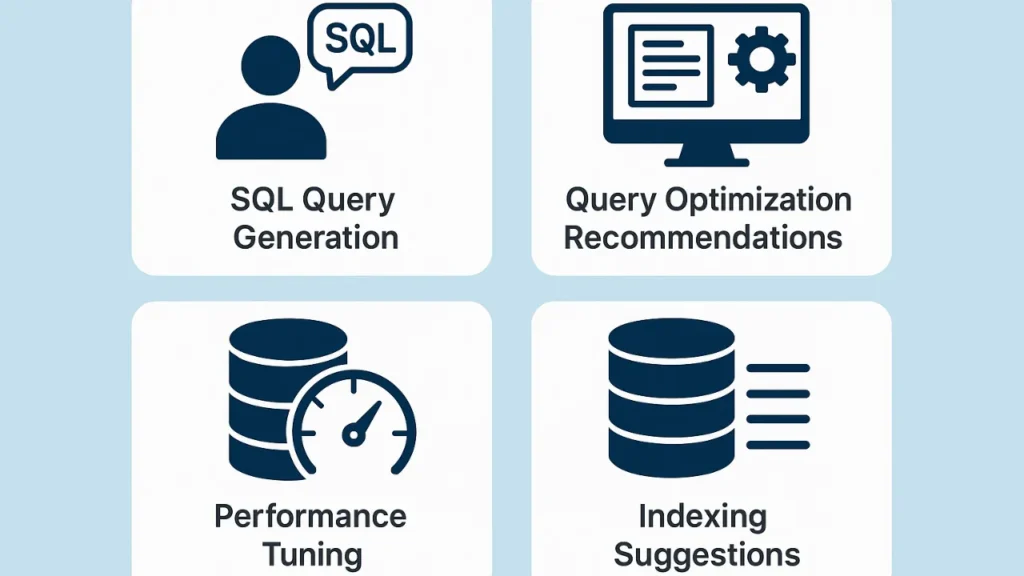
AI tools for SQL optimization is applicable to enterprises in every industry and technical environment.
Below are the most common and high-impact scenarios in which AI yields substantial gains:
E-Commerce Platforms: Online retailers process thousands of real-time requests product searches, inventory updates a second. AI-based tools fine-tune these requests to maintain speedy page views, streamlined checkouts and up-to-date availability of stock.
SaaS Applications: SaaS typically face multi-tenant database and queries joining multiple tables. AI optimises for consistent performance, latency reduction and automatically tunes queries across numerous user accounts.
Financial & Banking Systems: What banks and fintech apps need is high-speed, accurate data processing. Through AI, transactional queries, fraud detection queries and batch processing workloads are optimized to stay reliable and fast.
Healthcare & Medical Databases: Such systems contain vast quantities of sensitive patient information. Since raw data is never exposed, AI fine-tunes SQL performance without compromising on the privacy or security of patient medical records.
Large Enterprise Databases: Large companies with millions of production records depend on fast databases. AI offers dynamic tuning and automated anomaly-detection, excellent for complex, large/vast environments.
Analysis & BI (Business Intelligence): Heavy, complex queries are run by analytics tools and dashboards that can slow down reporting. AI is optimized for speed to make generating reports faster, dropping load times, and providing better support of big data.
Real-Time Applications: Ride-sharing, delivery service and gaming platforms as well as Internet of Things (IoT) applications depend on instant feedback. It’s AI that makes sure queries run quickly enough to enable real-time updating and continuous data processing.
ETL Pipelines & Data Warehouses: AI makes heavy extract-transform-load processes more efficient by diagnosing slow queries, optimizing joins and compressing overall pipeline efficiency in environments such as Snowflake, BigQuery and Redshift.
Startups with Limited DBA Resources: Database administrators are often in short supply at small teams. AI tools essentially work as automated DBAs that allow startups to keep up performance without employing large tech teams.
Legacy Systems Modernization: In upgrading legacy applications or moving databases, AI tools can inspect existing queries and adapt them for new database engines and save time in modernizing.
FAQs: AI Tools for SQL Query Optimization
Do AI tools for SQL query optimization replace DBAs?
No, AI tools do not replace DBAs. AI is used to automate the mundane, things like tuning queries, suggesting an index and monitoring performance. This frees up DBAs to concentrate on the more strategic priorities such as architecture, security and planning.
Which kind of SQL database is the best fit for AI to optimize?
The vast majority of AI SQL optimization tools are compatible with popular databases such as MySQL, PostgreSQL, SQL Server, Oracle and MariaDB. However, compatibility varies by tool. Make sure, your database is supported by your tool and the used SQL as well.
Are AI SQL tools secure with confidential data?
Yes, most AI tools are secure. Modern-day AI tools deploy such methods as metadata only analysis, data encryption and role-based access. Some tools can even optimize queries without looking at the data itself. Here is the golden rule: for any tool, check its security policy before using it in production.
Conclusion: AI Tools for SQL Query Optimization
AI tools for SQL query optimization is changing how developers and companies think about database performance.
Rather than just being reliant on manual tuning, AI-based platforms can automatically profile workloads, rewriting inefficient queries, recommending indexes and identifying if there is a performance issue before it affects users.
With ever-growing dataset sizes and more complex applications, using AI to optimize your SQL is not just a nice-to-have, it’s a must. By using the right AI optimization tool, and working it into your workflow: You will be able to greatly speed up queries, lower costs and build a more efficient data environment.
Read Also:


